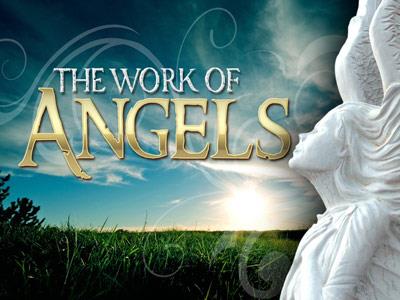-
Living For Christ In A Postmodern World
Contributed by Ezekiel Ette on Nov 28, 2017 (message contributor)
Summary: It is possible to live the Christian life and still live responsibly and fully in a world of diversity.
Living for Christ in a Postmodern World
The Rev. (Dr.) Ezekiel Ette
Matt. 22 : 15 – 22
We live in a confusing time indeed, a time when what is reality and truth are considered controversial, yet we follow a savior who is the way, the truth and the life” (John 14 : 6). There was a time when many thought that we humans have eventually found all answers to human problems and that the answer was science. By 1940 as WWII raged on, humans discovered that science was not the answer because the product of applied science added to the carnage of that war and suddenly we discovered that science was not the solution but part of the human problem. Human brutality exposed by the war and the capacity of humans for evil brought home the reality that those who predicted that science would lead to a new age in this world were wrong. Those who had shown themselves to be civilized were after all not civilized and pride in cultural achievements was simply hollow. Racism, ethnocentrism, sexism and ability to inflict pain and misery were not things to be proud of. As a result humans became cynical, doubtful and distrustful. By the 1970s we had seen that politicians will even resort to war to push a certain agenda and it became difficult to trust any authority. Further examination of our lives revealed that certain voices were excluded. Women, ethnic minorities were treated as second class citizens and this further pushed the divide and distrust. We, as a society, wanted more inclusiveness and we questioned the wisdom of excluding others. Those who pushed for the status quo even used their positions in the church to argue for a theology that excluded others. But there arose from within the church voices that called for love, tolerance and justice. One of such voices was the Rev Dr. Martin Luther King Jr. The theology of liberation called for justice and love as a true reflection of what it means to follow Christ. W. E. B. Dubois looking at the church wondered what it is that those who follow the Christ are the last to speak up against injustice and oppression. “When it comes to the negro problem, the church becomes a hypocrite” he declared. Because the Church often stands with those who practice oppression, people added the church to the distrust list and pews became empty. In our postmodern world, though we are living longer and healthier, we find ourselves looking for meaning. Information is now at our finger tips through technology, yet we live with angst because that same information has led to violence and terrorism. What gave power in the past gradually is losing its significance. You can get rich without territories. You can read without books. It is a brave new world and problems that others did not see before our time are confronting us every day. How then do we live in such a world and how do we live the Christian life?
Our passage today from Mathew’s Gospel is an interesting one and though the story speaks of individuals trying to plant evil, they unknowingly unleashed an answer from our Savior about living in a confusing time. You see, people had been living in Palestine because it was a promised land given to them by God, then there came political turmoil that threw all that into question in the minds of certain people. The Romans came as colonizers and imposed a new rule and a new government. They demanded taxes. Everyone had to pay taxes to a new ruler: Caesar. Each house and lineage were counted and taxed (Luke 2 : 1). This was confusing; the land was either not free or the new rulers had not recognized that the people were of God. It seemed like the divine authority was usurped. These were people who had been giving their sacrifices to God, why should they pay tribute to another ruler? Therefore, the idea of taxation by a new authority was indeed very confusing, controversial and odious. The Herodians and the Pharisees - two groups who did not see eye to eye, thought they had found a way to trap our Lord. The Pharisees hated anything foreign and were for purity of faith and culture. They loved the old time religion and culture and anyone who disagreed was not a true believer. The Herodians on the other hand loved peace and they supported the idea of Herod as the governor, though many thought he was an impostor. Herod’s party wanted peace at all cost and so they supported taxation by Rome while the Pharisees saw taxation as an abomination. This did not stop the two opposing groups from conspiring. They figured whatever our Lord said, each will have a reason to accuse him of something. Notice the editorial addition by St. Mathew in v. 18. Our Lord knew what they were up to and so he called for a coin and answered them in a way they did not expect: “Whose likeness is this?” They answered “Caesar” and by so doing convicted themselves and he told them “Then render to Caesar what is Caesar’s and to God what is God’s” (v.21) The Evangelist reported that upon hearing his answer, this strange bedfellows went away.

 Sermon Central
Sermon Central



